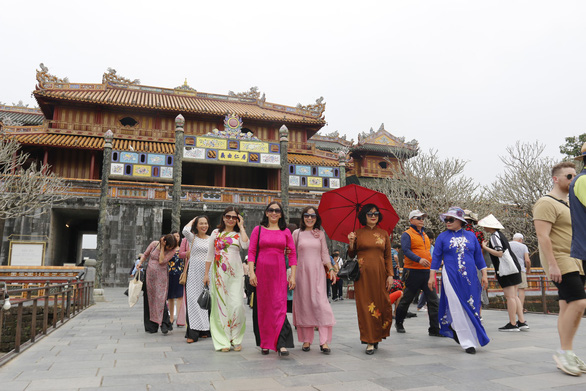Local and foreign female visitors wearing the ‘ao dai’, Vietnam’s traditional long gown, will enjoy free admissions to relic sites in Hue, a renowned tourist city located in the central province of Thua Thien - Hue, on October 20 in observation of the Vietnamese Women's Day.
Phan Ngoc Tho, chairman of the provincial People’s Committee, has directed the Hue Monuments Conservation Center to make residents and visitors aware of the free-entrance offer.
Both Vietnamese and international tourists currently have to pay for entrance tickets to relic sites in Hue.
Particularly, tickets are priced at VND150,000 (US$6.50) apiece to the Hue Imperial Citadel, VND200,000 ($8.62) each to visit the royal tombs of Emperors Minh Mang, Tu Duc, and Khai Dinh, and VND40,000 ($1.72) each to visit the royal tombs of Emperors Gia Long and Thieu Tri.
Earlier this year, the Hue Monuments Conservation Center also launched a similar campaign to offer free entrance to female visitors who donned the ‘ao dai’ to the Hue relic sites on March 7-9 as a way to honor women on the International Women’s Day (March 8).
The 'ao dai' is a Vietnamese national garment, worn by both sexes but now most commonly worn by women. In its current form, it is a tight-fitting silk tunic worn over trousers.
Hue City, famous for being Vietnam’s former capital during the Nguyen dynasty - the country’s last dynastic reign, has attracted more than 3.4 million visitors so far this year, according to the Department of Tourism of Thua Thien – Hue.
Of the 3.4 million visitors, 1.4 million were foreigners, an 8.7-percent growth from the same period of last year.
The provincial revenue from tourism in 2019 has exceeded VND3,299 billion ($141.85 million) as of October, up nine percent year-on-year.
Like us on Facebook or follow us on Twitter to get the latest news about Vietnam!


















































